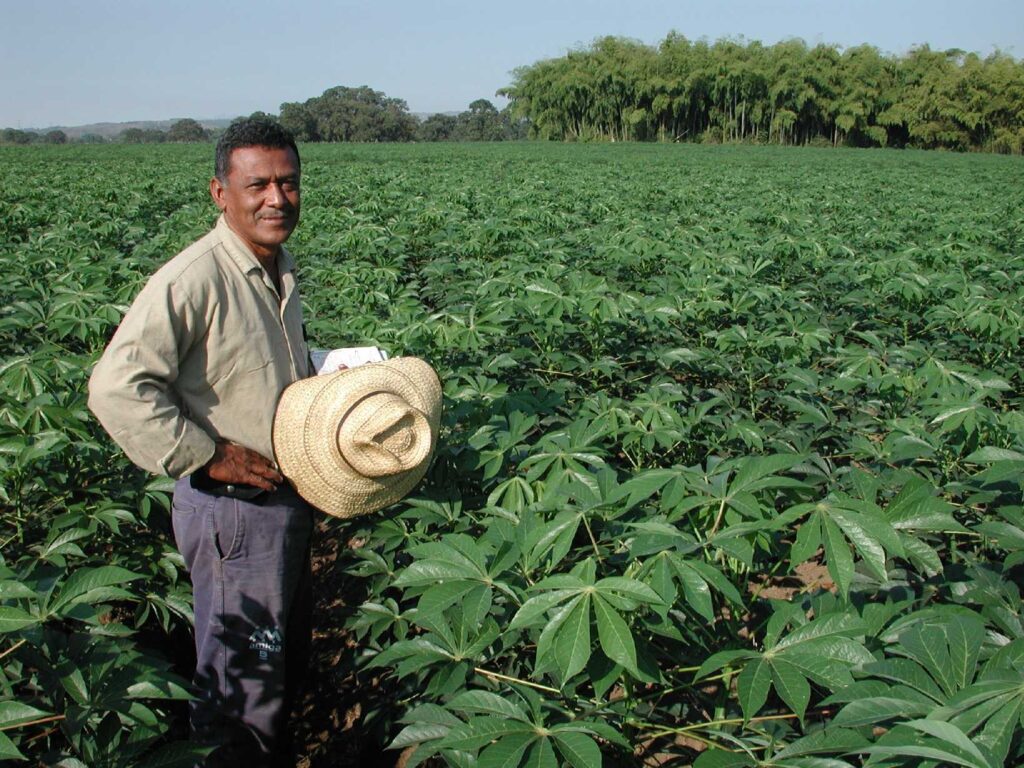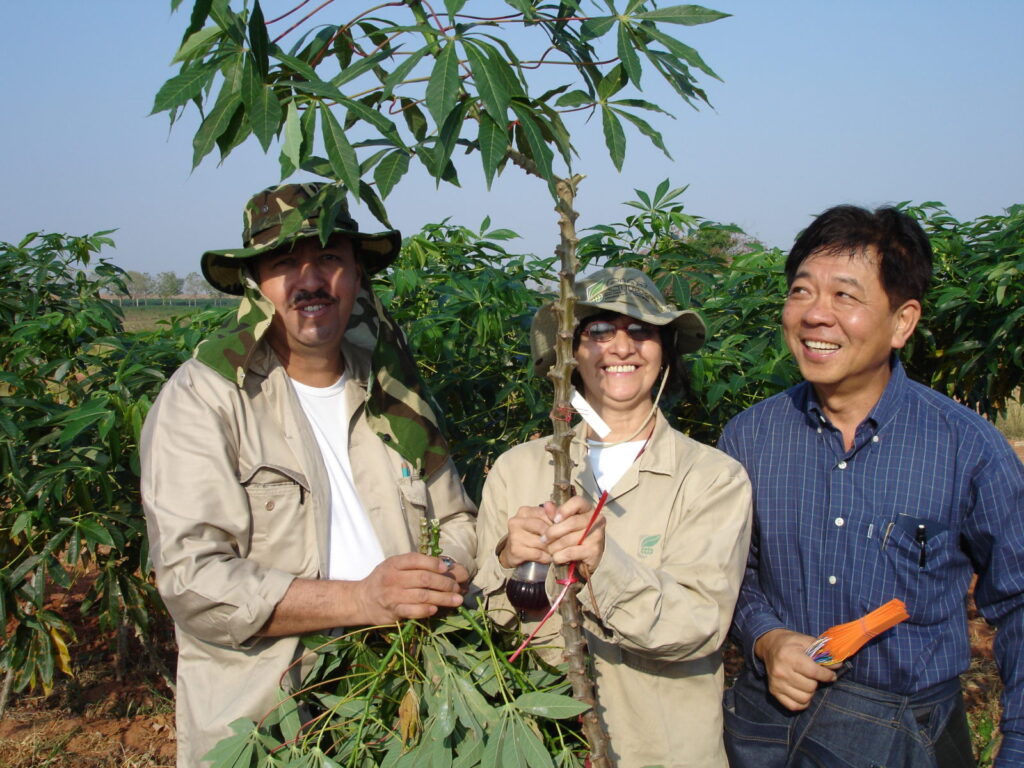Crop Overview
Cassava is a vital crop for millions of people in sub-Saharan Africa, providing food security, income, and resilience to climate change. However, cassava faces many challenges, such as pests, diseases, low yield, and poor quality.
Cassava is a vital crop for millions of people in sub-Saharan Africa, providing food security, income, and resilience to climate change. However, cassava faces many challenges, such as pests, diseases, low yield, and poor quality.

RTB Breeding for Cassava connects cutting-edge crop science to cassava farmers, processors, and consumers to serve their needs and preferences. This endeavor aims to improve cassava breeding and deliver better varieties to African farmers and consumers. We do this by:

The predecessor to this project, NextGen Cassava, developed and released five new cassava varieties in Nigeria that have improved yield, disease resistance, and quality traits. These varieties are:
NextGen Cassava also created genomic resources and tools for the global cassava community, such as the 3rd Generation Hapmap, the CassavaBase database, and the Cassavabreed R package. NextGen Cassava also adopted genomic selection and other best practices that reduced the breeding cycle by more than half and increased the accuracy and efficiency of selection. It also conducted product profile and variety adoption studies to identify the traits and preferences of different segments of cassava farmers and consumers. Finally, NextGen Cassava has established a network of cassava breeders and stakeholders that fosters knowledge exchange and collaboration. Other milestones include